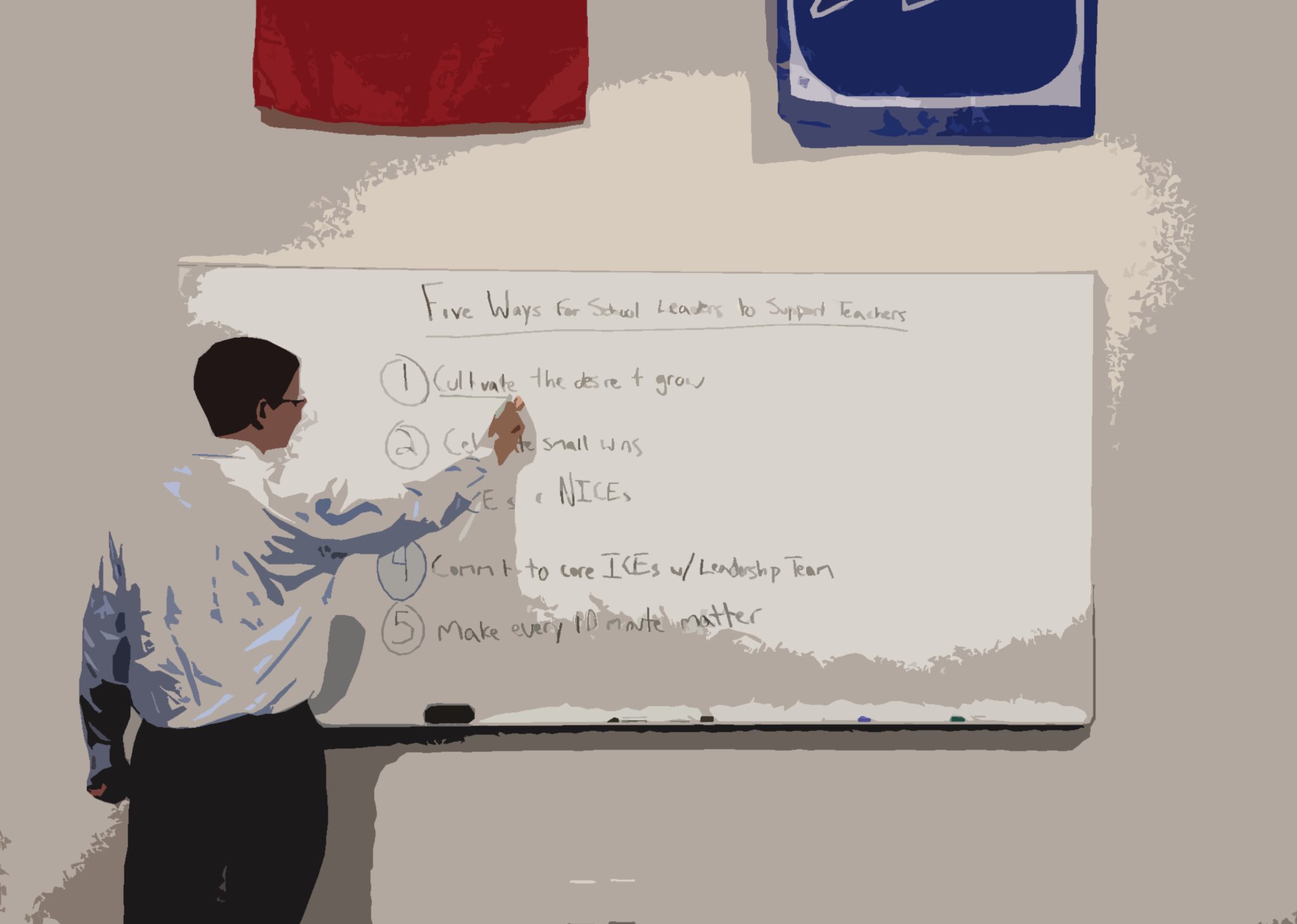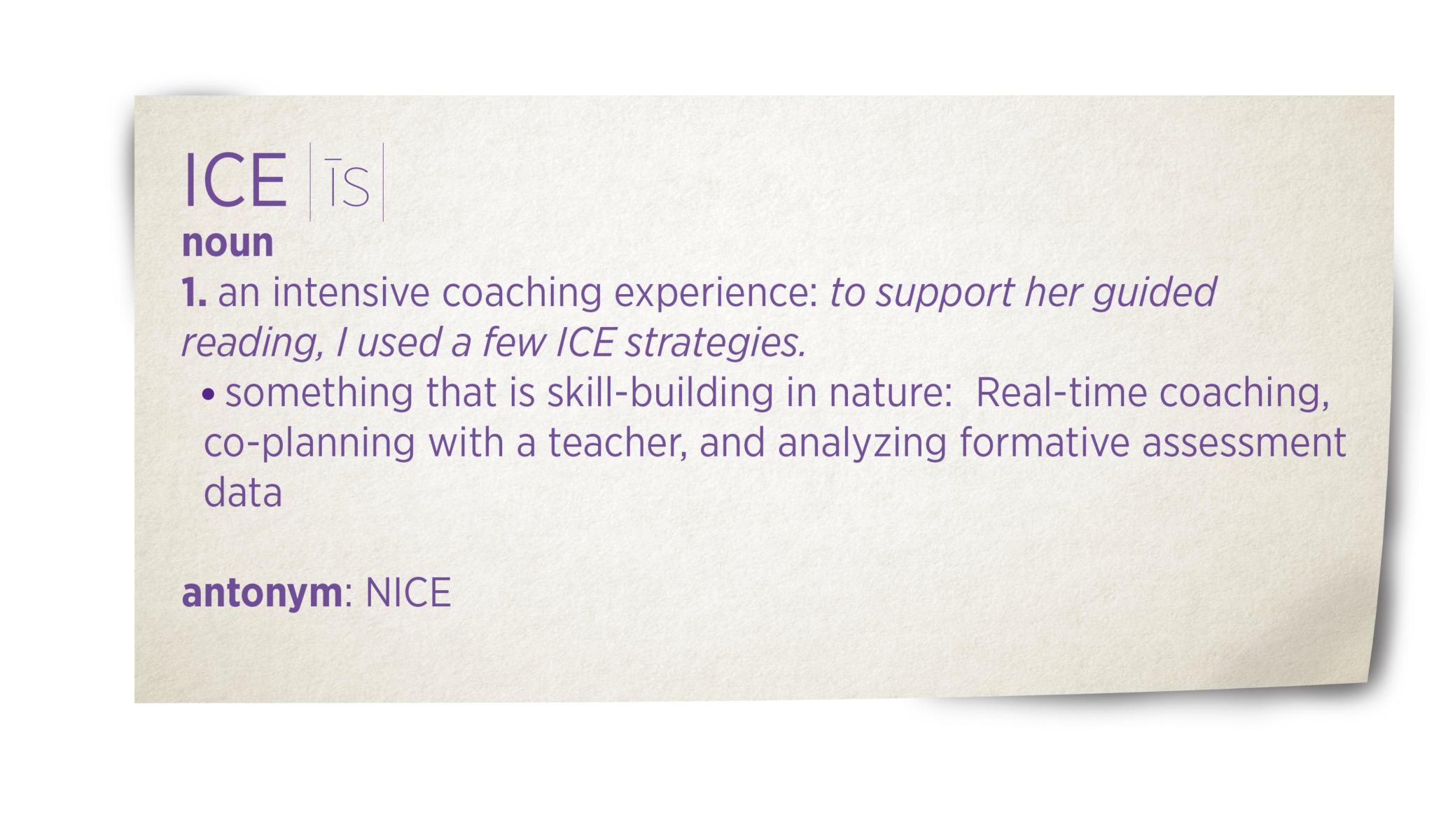
Five Ways for School Leaders to Support Teachers
by Adam Nadeau, Principal, Rocketship Nashville Northeast Elementary
Personalized learning and data-driven instruction have both become persistent in education dialogue, and I hear about them all the time. At Rocketship, we deeply believe that every child’s education has to be personalized; a commitment to using data and assessments to individualize every child’s education, having the flexibility to convene groups of different sizes depending on the lesson, and a purposeful use of technology to enhance student learning and support classroom instruction is a large part of what makes our schools transformative.
If we believe that personalized learning is the best thing for our children, there’s no reason we shouldn’t be approaching all of our professional development for our staffs in the same vein. Convening groups of different sizes based on needs, committing to coaching practices that we know to be skill-building in nature, and using data to constantly gauge growth and development are all just as critical with our teachers as they are with our children.
There are many variables at the teacher level that affect student achievement: experience level, past results, education, maturity, work ethic, etc. But, to me, there’s only one that I can truly control: the amount and kind of development and support they get. Building systems and structures for truly personalized teacher development is critical if our students are going to get what they need to be successful.
Here are five core ideas that drive our approach to personalized support for our teachers:
1. Cultivate the desire to grow
Build comprehensive visions of excellence and use it as a coaching tool to ensure teachers see a pathway in their development. At Rocketship, we use very-detailed rubrics that we both create and constantly edit as our vision of instruction evolves. Take the time to discuss these rubrics with your teachers and understand how the rubric fits in the teacher’s idea of excellence.
2. Celebrate small wins
We celebrate our students all the time. Teachers should be celebrated too. Having high expectations is a double-edged sword: it is both really important for all members of a community and makes authentic celebration of success very challenging. Be comfortable celebrating growth in a skill or progress towards a big goal, even if that goal is far from being met.
3. Delineate between ICEs & NICEs 
ICE, or an intensive coaching experience, and should something that is skill-building in nature. Real-time coaching, co-planning with a teacher, and analyzing formative assessment data with a teacher are all ICEs in my coaching. NICEs (Not ICEs), for us, are things like lesson-plan feedback and modeling: they’re nice to do, but they aren’t by nature skill-building, so they can’t be a huge part of our coaching processes.
4. Commit to a core group of ICEs as a leadership team
If we are going to develop as instructional coaches, we as school leaders have to collaborate deeply. In our schools, we choose a small number of ICEs that match our school’s needs and look to put them into practice together. By coaching together, we are likely to both grow more as coaches and grow more quickly, both of which are going to have a huge impact on student achievement.
5. Make every PD minute matter
We value small-group collaborative learning much more than we do whole group PD, so you see the majority of our PD time going towards the former. If we want to build a staff culture where constant learning and collaboration are at the core, this has to be represented in how we structure our professional development and support structures.
—
Adam is the founding Principal of Rocketship’s first school in Nashville, which opens this July for 450 elementary school students and their families. He grew up in Nashville and then attended college at Middlebury in Vermont before getting a Masters from Vanderbilt in elementary education. After teaching for many years in Nashville, Adam joined Rocketship as a teacher in 2009 and has since been the Principal of two Rocketship schools, Los Suenos and Mosaic. When he’s not encouraging people to utilize the first third of VICTOR, he spends his time trail running and collecting folk art.
Published on April 11, 2014
Read more stories about: Most Popular Stories, Teacher Experience.


